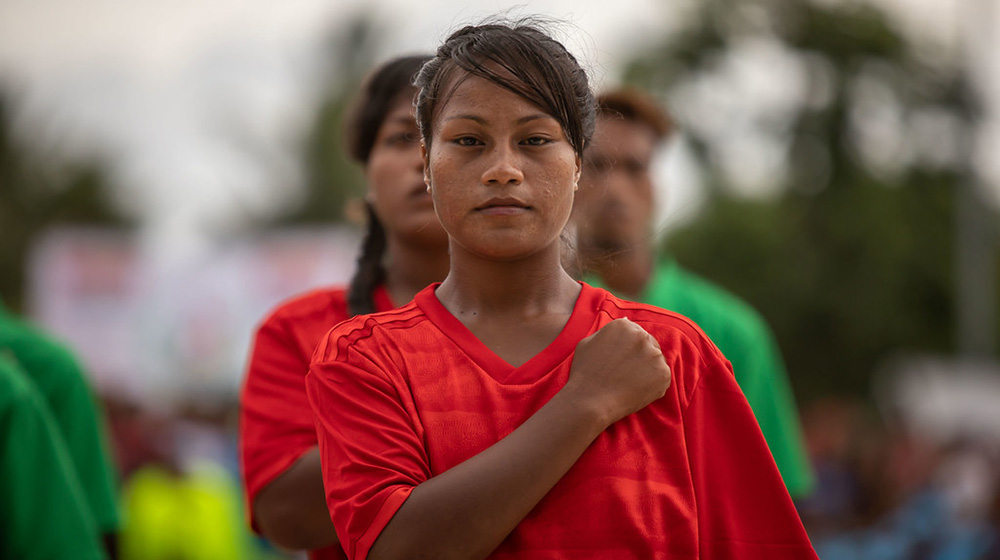
If the article isn’t opening or displaying properly, I can resend the content directly here:
Ending Gender-Based Violence: A Global Imperative
Gender-based violence (GBV) remains one of the most pervasive human rights violations worldwide, affecting millions regardless of age, socio-economic status, or location. It encompasses a wide range of harmful acts directed at individuals based on their gender, including physical, sexual, psychological, and economic abuse. The time has come for a unified global effort to address and eradicate gender-based violence, ensuring safety, dignity, and equality for all.
The Global Scale of Gender-Based Violence
The statistics surrounding GBV paint a sobering picture. According to the United Nations, one in three women globally has experienced physical or sexual violence in her lifetime, most often perpetrated by an intimate partner. The COVID-19 pandemic further exacerbated this crisis, leading to what has been termed the “shadow pandemic,” with increased reports of domestic violence due to lockdowns and restricted movement.
Although women and girls are disproportionately affected by gender-based violence, it is not exclusive to them. Men, boys, and members of the LGBTQ+ community also face gender-based violence, albeit with unique manifestations and risk factors.
Causes and Contributing Factors
Gender-based violence is deeply rooted in unequal power structures and traditional gender norms that perpetuate discrimination. Cultural and societal norms often normalize or justify acts of violence, while inadequate legal frameworks and insufficient enforcement enable perpetrators to act with impunity.
Economic dependency, lack of education, and limited access to resources further compound the issue, trapping victims in cycles of abuse. These factors are interwoven with systemic issues such as poverty and political instability, making the fight against GBV complex and multi-dimensional.
Strategies for Combatting Gender-Based Violence
Addressing GBV requires a comprehensive approach that targets its root causes and empowers survivors. The following strategies are key to an effective response:
- Strengthening Legal Protections: Ensuring that robust laws are in place to criminalize all forms of gender-based violence and that these laws are effectively enforced.
- Education and Awareness: Implementing educational programs that challenge harmful gender norms and promote equality from an early age.
- Support Services for Survivors: Expanding access to support systems, including shelters, counseling, and legal assistance, to help survivors rebuild their lives.
- Community Involvement: Encouraging community leaders and influencers to speak out against GBV and foster an environment of zero tolerance.
- Global Collaboration: Governments, NGOs, and international organizations must collaborate to share best practices and coordinate responses to combat GBV on a larger scale.
The Role of Men and Boys
Engaging men and boys in the conversation is critical for meaningful change. Programs that encourage positive role models, teach empathy, and promote healthy relationships can shift societal norms and reduce incidents of violence. Men must be seen not only as part of the problem but as essential allies in fostering change.
Hope for the Future
The fight against gender-based violence is gaining momentum, with a growing recognition that such violence is preventable. Initiatives like the UN’s “16 Days of Activism Against Gender-Based Violence” and grassroots campaigns across the world are raising awareness and driving policy changes.
By amplifying survivor voices, funding research, and dedicating resources to prevention and support, we can build a future where GBV is no longer tolerated. The path forward requires collective action, empathy, and an unwavering commitment to the belief that everyone has the right to live free from violence and discrimination.
Conclusion
Ending gender-based violence is not just a moral obligation—it is essential for achieving sustainable development and true gender equality. The global community must act decisively, ensuring that individuals everywhere can live with dignity and security. It is time for transformative change, where societies uphold respect, support, and justice for all.
Let me know if you’d like this formatted or edited further!
